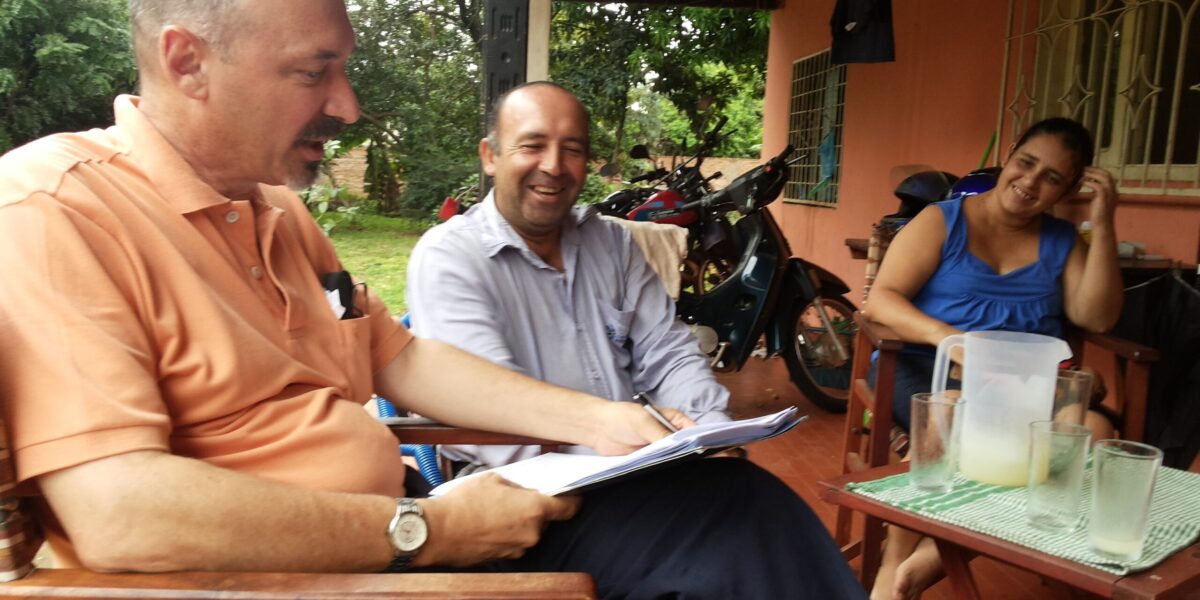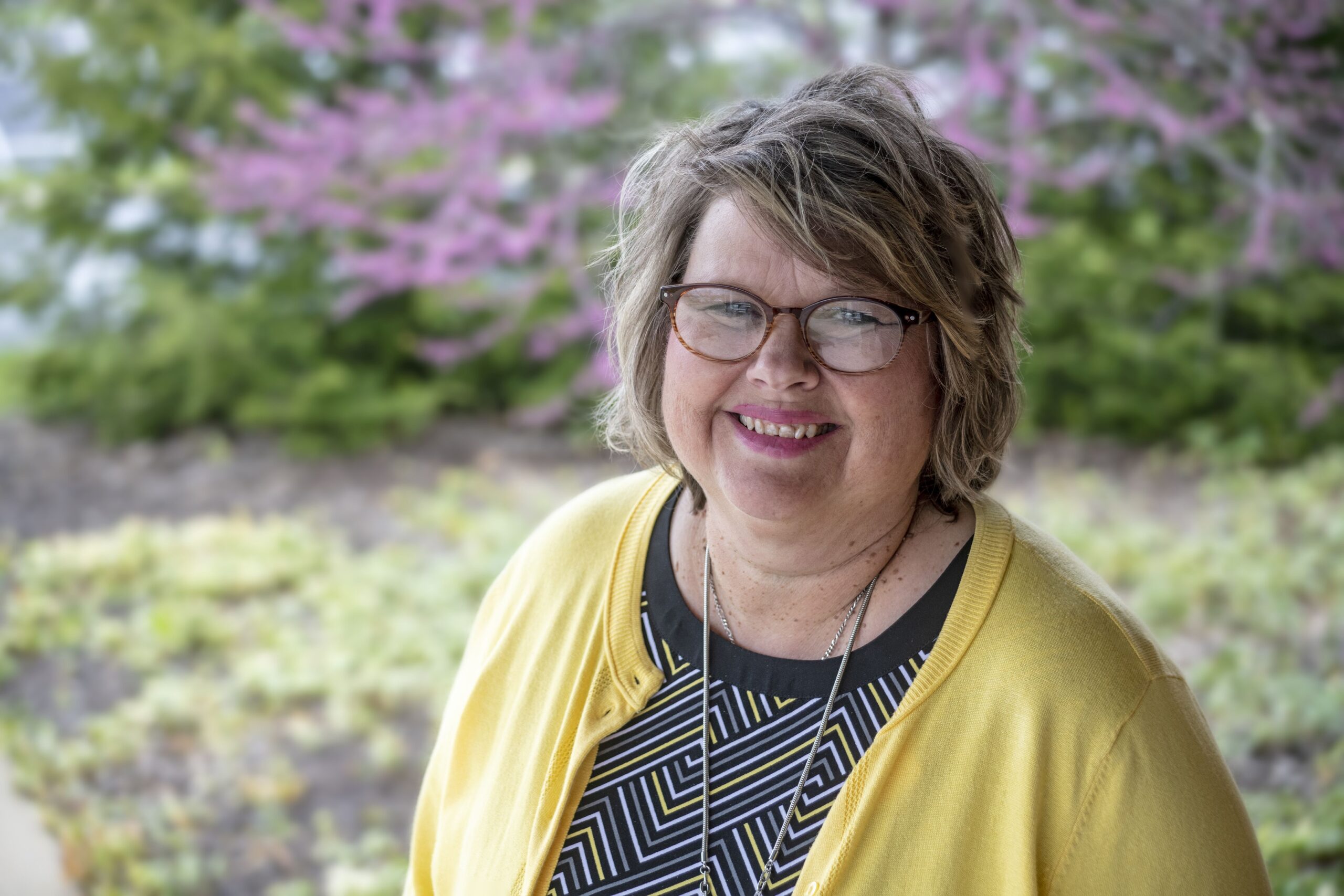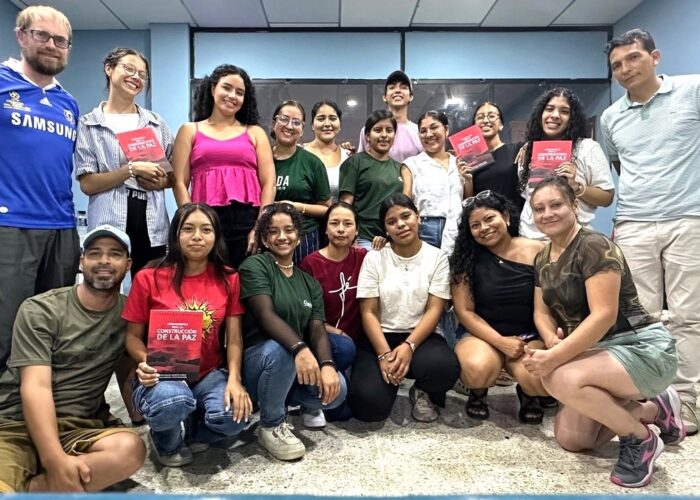NEWTON, Kansas (Mennonite Mission Network) — As Hildi Amstutz spoke with a seminary student during a graduation ceremony at Centro Evangélica Mennonita de Teología Asunción (CEMTA)in Asunción, Paraguay, he shared his passion for the silent retreats that he had once considered unimportant.
In that moment, she realized that 15 years of quiet persistence had paid off, says Amstutz, program director for the Asociación Querit retreat ministry. Launched in 2005, Asociación Querit now has nine retreats per year. The retreats are part of the multifaceted ministry Amstutz shares with her husband, C. Paul Amstutz. C. Paul is originally from the United States and Hildi from Paraguay. They have served as mission associates with Mennonite Mission Network in Paraguay since 1991.
Ever since they started offering the contemplative retreats to students from CEMTA and a nearby Mennonite Brethren seminary, the two days of silence and prayer have increased in popularity, the Amstutz couple said in a recent Zoom interview. In the last decade, almost all theology students at both seminaries have attended a contemplative retreat in their freshman or sophomore years.
"A graduate student receiving his diploma said, ‘I needed what these retreats have to offer,’" Hildi Amstutz said. "This affirmation, from someone who, at first, saw so little value in silent retreats, shows the transformation of attitudes over time. … The retreat lasts only 48 hours, yet its impact is long-lasting."

Hildi Amstutz shares with a youth group at CEMTA (Centro Evangélica Mennonita de Teología Asunción) during a spiritual retreat about the various ways in which people connect with and experience God, noting for example that some see biblical truths come alive while contemplating creation, while others connect profoundly with God in other ways. Photo by Bianca Toews
According to Hildi Amstutz, retreats have become more popular, in part, because current generations of students better understand that contemplative being is as important as active doing. She observed that retreats help strike a balance for students doing a lot of academic work. The two days apart from busyness help provide time and space for forging greater intimacy with God.
"Spiritual formation consists of more than learning exegesis and hermeneutics," she said. "The retreat setting invites the students to develop a deeper awareness of and attention to God’s movement in their lives."
Walking the talk in a multifaceted ministry
Through this retreat ministry, the couple has come to see how crucial soul rest is to bringing renewal and focus to the lives of church leaders, including themselves, they said.
In addition to offering these retreats, C. Paul Amstutz serves as mentor and supervisor in Capellanía Empresarial (business chaplaincy program). Together, the couple ministers in multiple settings, including serving as spiritual caregivers with seniors in a German-speaking Mennonite community. (See Hildi Amstutz’s blog, Creating a to-be list.)
In 1991, Mennonite business leaders invited C. Paul Amstutz to help them develop the Mennonite-initiated business chaplaincy program, which invites workers and their families to life in Christ and kingdom living, through on-site devotional times and counseling. It also offers conferences tailored toward the concerns of business owners and managers. C. Paul Amstutz began as the sole chaplain for five companies; now more than 60 companies engage 67 chaplains, he said.
The program began as a vision for sharing the gospel, along with running an exemplary business, C. Paul Amstutz explained. The Sunday/Monday connection between one’s spiritual life and work life has become more intentional over the years, as awareness of the gap — and its consequences — grew.
"This movement has grown by the word of mouth of business owners, who are coming to see that ignoring the spiritual aspects of our beings has negative consequences in the lives of their employees and families, as well as the emotional environment of their workplaces," he said.
Concurrent with C. Paul Amstutz’s invitation to join the business chaplaincy program, the board of the Servicio Voluntario Menonita, a Mennonite Voluntary Service program run by four Mennonite church conferences in Paraguay, invited Hildi Amstutz to be a counselor for its volunteers.
Ten years later, the couple helped plant — and then pastored — a Spanish-speaking church plant, La Roca (The Rock), from 2001 to 2008. And more recently, they provide pastoral care to seniors of the Mennonite and Mennonite Brethren German-speaking community in Asunción.
"We are finding that very active seniors in their 70s, as well as those who are bedridden, face issues of control," Hildi Amstutz said. "We encourage these seniors to create ‘to-be’ lists to replace the ‘to-do’ lists that have been part of their lives in former decades," she said.
C. Paul and Hildi Amstutz are in their 60s and are, themselves, reflecting on three decades of ministry, marked by humility and grace.
C. Paul Amstutz paraphrased I Tim. 1:12 as a verse that sums up some of his reflections – he gives thanks to the Lord Jesus Christ … who has considered him faithful and put him into God’s service. "God had to risk an awful lot to take me on a co-worker," he said.
"What has amazed me time and time again is how God dares to partner with us and invites us to partner with him, despite our shortcomings, limitations and times of disobedience," Hildi Amstutz said. "A big, holy God keeps inviting frail humans to work alongside him and to collaborate with him."





